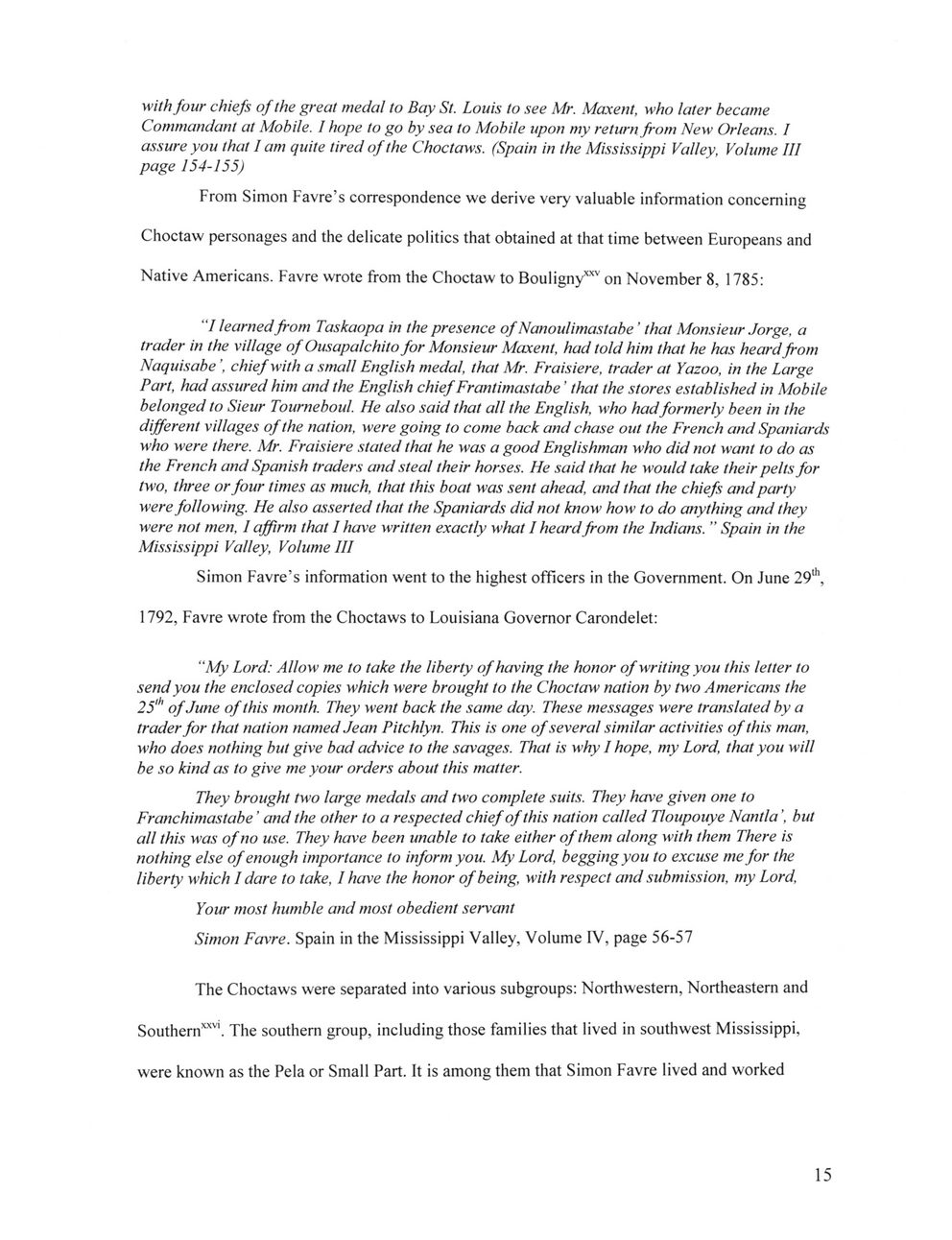This text was obtained via automated optical character recognition.
It has not been edited and may therefore contain several errors.
with four chiefs of the great medal to Bay St. Louis to see Mr. Maxent, who later became Commandant at Mobile. I hope to go by sea to Mobile upon my return from New Orleans. I assure you that I am quite tired of the Choctaws. (Spain in the Mississippi Valley, Volume III page 154-155) From Simon Favre?s correspondence we derive very valuable information concerning Choctaw personages and the delicate politics that obtained at that time between Europeans and Native Americans. Favre wrote from the Choctaw to Boulignyxxv on November 8, 1785: ?7 learned from Taskaopa in the presence of Nanoulimastabe ? that Monsieur Jorge, a trader in the village of Ousapalchito for Monsieur Maxent, had told him that he has heard from Naquisabe ?, chief with a small English medal, that Mr. Fraisiere, trader at Yazoo, in the Large Part, had assured him and the English chief Frantimastabe ? that the stores established in Mobile belonged to Sieur Tourneboul. He also said that all the English, who hadformerly been in the different villages of the nation, were going to come back and chase out the French and Spaniards who were there. Mr. Fraisiere stated that he was a good Englishman who did not want to do as the French and Spanish traders and steal their horses. He said that he would take their pelts for two, three or four times as much, that this boat was sent ahead, and that the chiefs and party were following. He also asserted that the Spaniards did not know how to do anything and they were not men, I affirm that 1 have written exactly what I heard from the Indians. ? Spain in the Mississippi Valley, Volume III Simon Favre?s information went to the highest officers in the Government. On June 29th, 1792, Favre wrote from the Choctaws to Louisiana Governor Carondelet: ?My Lord: Allow me to take the liberty of having the honor of writing you this letter to send you the enclosed copies which were brought to the Choctaw nation by two Americans the 25?' of June of this month. They went back the same day. These messages were translated by a trader for that nation named Jean Pitchlyn. This is one of several similar activities of this man, who does nothing but give bad advice to the savages. That is why I hope, my Lord, that you will be so kind as to give me your orders about this matter. They brought two large medals and two complete suits. They have given one to Franchimastabe ? and the other to a respected chief of this nation called Tloupouye Nantla ?, but all this was of no use. They have been unable to take either of them along with them There is nothing else of enough importance to inform you. My Lord, begging you to excuse me for the liberty which I dare to take, I have the honor of being, with respect and submission, my Lord, Your most humble and most obedient servant Simon Favre. Spain in the Mississippi Valley, Volume IV, page 56-57 The Choctaws were separated into various subgroups: Northwestern, Northeastern and Southern?0"'1. The southern group, including those families that lived in southwest Mississippi, were known as the Pela or Small Part. It is among them that Simon Favre lived and worked 15

Favre The-Favre-Family-in-Hancock-County-15